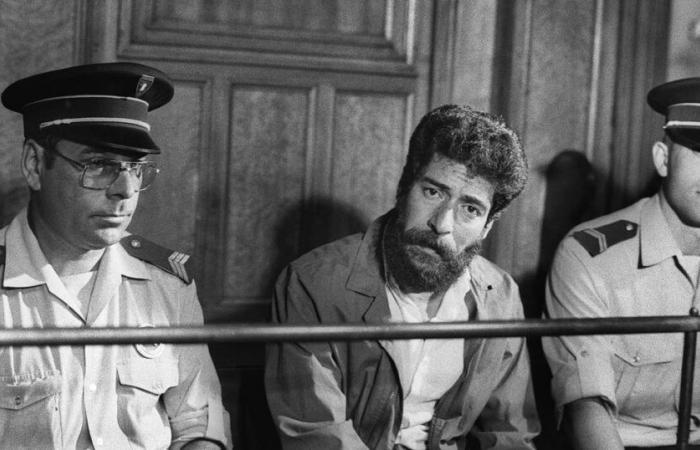
The sentencing court ordered this Friday the release of the Lebanese pro-Palestinian activist, sentenced to life in prison for the murder of two diplomats. The national anti-terrorism prosecution appealed the decision.
Will it be the right one for one of the oldest prisoners in France? After 40 years behind bars, the sentence enforcement court accepted this Friday, November 15, the eleventh request for conditional release from December 6 of Georges Ibrahim Abdallah, this Lebanese pro-Palestinian activist detained since 1984 for complicity in the murder of two diplomats , an American and an Israeli. Immediately afterwards, the National Anti-Terrorism Prosecutor’s Office (PNAT) appealed. The final decision could be made early next year.
Now aged 73 and imprisoned in the Lannemezan penitentiary center in the Hautes-Pyrénées, he has been eligible for release for 25 years. All his requests for conditional release had been rejected, except one in 2013, accepted on condition that he was subject to an expulsion order which had however not been implemented by the Minister of the Interior of ‘so, Manuel Valls.
Return as a hero to Lebanon?
This time, the French authorities are not requesting such a prior expulsion order from the Ministry of the Interior, we learned from a diplomatic source. Furthermore, the motivations of the sentence enforcement court would be “much more positive” that during his last request for release. Abdallah is said to have obtained a letter from the Lebanese authorities in which they affirm that his release and return to the country will not constitute a disturbance of public order. Clearly, France fears that he will be welcomed as a hero, even though many Lebanese have been campaigning for his release for years.
Originally from a village in northern Lebanon, this trained Christian teacher spent more than half his life in prison. In the early 1980s, while his country was at war, he co-founded the Lebanese Revolutionary Armed Fractions, a small pro-Syrian and anti-Israeli Marxist group which claimed five attacks, including four fatalities, in 1981-1982 in France.
Also read
Georges Ibrahim Abdallah: Hezbollah’s warning to France
“I am a fighter, not a criminal”has always insisted on this man with clear eyes and a full beard, who never expressed the slightest regret, and read a lot in prison, where Lebanese diplomats regularly came to see him. The former President of the Lebanese Republic, General Michel Aoun, raised his case several times before Emmanuel Macron. And for the first time in 2022, the Minister of Justice of Lebanon, Ms. Marie-Claude Najem, visited him, in agreement with the French authorities. In Beirut, he was notably defended by Hezbollah and old ex-communist militants, like him, who had joined the pro-Iranian Shiite militia. In recent months, Lebanon has relaunched its request for release.
In France, over the years, a mobilization in favor of his release, initially confined to the far left, had gained momentum, going as far as the Nobel Prize winner for literature Annie Ernaux, who considered him to be “victim of state justice which shames France”.
Note from the United States sent to the Quay
However, on October 24, 1984, it was he who entered a Lyon police station for the unprecedented arrest of a man who asked to be protected from Mossad killers who he said were on his trail. But the DST – the internal intelligence service – quickly understands that the individual with perfect French is not a tourist, but Abdel Kader Saadi, the “nom de guerre” of Abdallah, who holds an Algerian passport, after having had Maltese, Moroccan and Yemeni passports useful for his numerous travels.
In one of his apartments in Paris, we discovered guns and two-way radios. He was sentenced in 1986 to four years in prison for criminal conspiracy and possession of weapons and explosives. Then he was tried the following year by the Paris Special Assize Court for complicity in the 1982 assassination of two diplomats – the American Charles Ray and the Israeli Yacov Barsimentov, and the attempted assassination of a third in 1984. Abdallah denies it, reaffirming that he is not “nothing but an Arab fighter”but he is sentenced to life imprisonment, while the attorney general requested ten years of imprisonment. From 1999, Americans and Israelis continually opposed his requests for parole. In recent years, confides a diplomat, “Washington sent a note verbale to the Quai d’Orsay to be transmitted to the French Ministry of Justice asking it to appeal”. What will happen this time?





